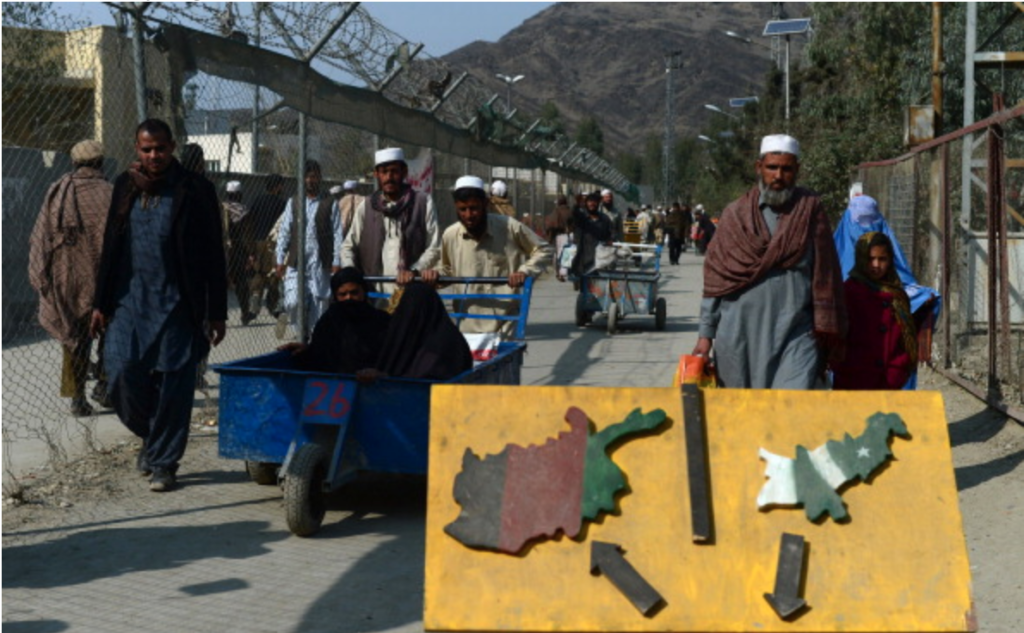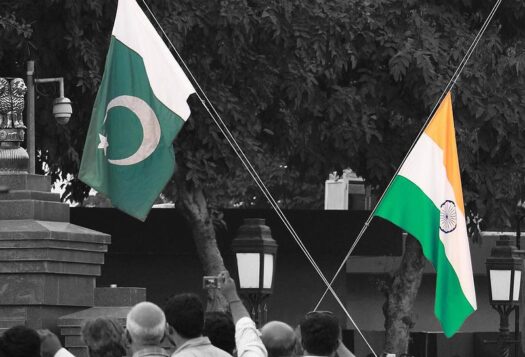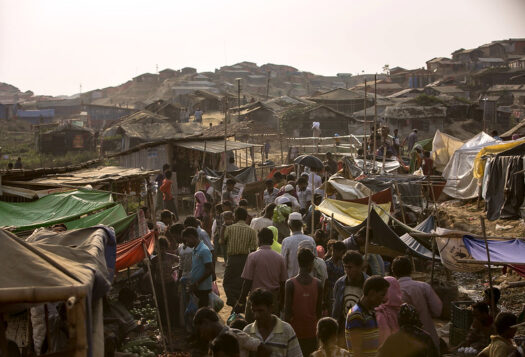
As the U.S.-withdrawal from Afghanistan is expected much earlier than the September 11 deadline, Pakistan has been actively publicizing its fears about a “protracted civil war” ensuing in a post US-withdrawal Afghanistan. In a June interview with the New York Times, Prime Minister Imran Khan warned that Pakistan would seal its border with Afghanistan (the Durand Line) if the Taliban took over Kabul militarily. This, he stated, would prevent Pakistan from unwanted involvement in violent conflict and limit the further influx of refugees, as over 2 million Afghan refugees already reside in Pakistan. Foreign Minister Shah Mehmood Qureshi affirmed this policy later in a media briefing while assuring that Pakistan would continue its efforts for peace in Afghanistan.
The Durand Line has a long history of complicating Pakistan-Afghanistan relations: Kabul insists that the Durand Line border agreement signed between British India and Afghanistan in 1893 has expired, and that it should retain “disputed” status, while Islamabad avows that it is a formalized, international border. Both governments blame each other for cross-border terrorism, resulting in periodic border skirmishes.
While threatening a border closure proves Pakistan’s claim about its limited influence over the Taliban, the policy, if implemented, risks exacerbating security challenges and weakening Pakistan’s strategic position in Afghanistan. Sealing the Durand Line would have additional domestic implications, including uniting the currently dispersed opposition against the Pakistan Tahreek-e-Insaaf (PTI) led government. While Pakistan has actively declared its support for the democratically elected government in Kabul and not the Islamic Emirate under the Taliban, the government in Kabul still attributes to Pakistan an “organized system of support” for the Taliban. To shore up its commitment to peace and democracy in Afghanistan, Islamabad must win the trust of pro-democracy political actors in Afghanistan. Unilaterally sealing the Durand Line would undercut this effort, as it dismisses Kabul’s objections to its legitimacy as a border. Peace and stability in the region demands the two governments manage the border collectively.
The Domestic and Diplomatic Risks of Sealing the Border
Pakistan’s frustration about an accelerated U.S.-withdrawal must be seen in the context of its own security and economic concerns. Islamabad sees the Taliban as better suited to serving its interests in Kabul because their religious ideology makes them less likely to forge ties with India or support Pashtun irredentism. Nonetheless, Pakistan appears to prefer a Taliban power-sharing agreement through negotiated settlement rather than unitary rule achieved through military takeover. Pakistan fears a reversion to the 1990s political situation, when it was left to manage the aftermath of Soviet-Afghan War. In 1990s, as a civil war erupted in Afghanistan, Pakistan also faced an influx of refugees crossing the porous Pakistan-Afghanistan border, the illegal trade of narcotics and arms from Afghanistan, and a surge in religious extremism. As Pakistan fears another civil war taking form in Afghanistan, it interprets sealing the border as a means of halting the movement of refugees, drugs, arms, terrorists, and extremist ideologies.
Islamabad must win the trust of pro-democracy political actors in Afghanistan. Unilaterally sealing the Durand Line would undercut this effort, as it dismisses Kabul’s objections to its legitimacy as a border.
Policymakers in Islamabad must realize that sealing the Durand Line will offer little help in managing post-withdrawal security challenges and runs contrary to their interests. With several military bases in different areas of Pakistan, as well as ideological support from various religious groups, the Taliban have the power to disrupt law and order in Pakistan even if the border is closed. The Taliban already pose a significant and very real security challenge: most recently, they threatened to “fulfill their religious and historical responsibility” if Pakistan allows its military bases to be used by the United States. More importantly, losing control over the Taliban means relinquishing Pakistan’s role in Afghanistan’s future. The Prime Minister has already acknowledged that Pakistan’s relationship with the Taliban was established through recognizing their government in the 1996; sealing the border could result in Pakistan losing its ties with the Taliban by signaling its lack of trust in their government. In the 1990s, the Taliban government remained silent on the issue of recognizing the Durand Line as an international border. Now, Pakistan must consider how the Taliban would react to a Pakistani border closure if the Taliban were to regain power.
For the Pakistani government, there are also significant domestic costs to a sealed border. First, sealing the Durand Line amidst an Afghan civil war could provide a common agenda for the currently scattered opposition in Pakistan. Nationalist political parties that already oppose fencing the Durand Line could mobilize Pashtuns and Balochis whose employment opportunities and ability to meet their relatives across the border would be affected by the sealed border. Islamist political parties can play the Muslim unity card to criticize the PTI government for leaving its Afghan Muslim brothers unaided in time of a crisis—they had actively participated in the Soviet-Afghan war calling it a Jihad against invasion on an Islamic country. The PTI might also further lose its support base for contradicting former policy stances: it has previously opposed sealing the border on humanitarian and religious grounds.

The Policy Paradox
The specificity with which Prime Minister Khan ties his border-sealing proposal to a potential Taliban military takeover—and not simply a “civil war”—aligns well with the government’s claims that it has no favorites in Afghanistan. Some analysts describe this opposition to Taliban military seizure as a reorientation of Pakistan’s Afghanistan policy—it was the first country to recognize the Taliban regime after its military takeover of Kabul in 1996. The PTI’s current position does not actually contradict its long-held stance that peace in Afghanistan is only possible through negotiation with the Taliban. While the PTI government has explicitly worked to bring the Taliban to the table, it has taken a neutral position and publicly expressed support of an “Afghan-led” peace process and noted the limits of its influence over the Taliban.
The proposal to seal border suffers from a key paradox: Pakistan is simultaneously supporting democracy in Afghanistan while ignoring and subverting the elected government in Kabul’s stance on the border.
Yet the proposal to seal border suffers from a key paradox: Pakistan is simultaneously supporting democracy in Afghanistan while ignoring and subverting the elected government in Kabul’s stance on the border. Pakistan’s long partnership with the Taliban—including hosting bases on Pakistani soil and allegations of tactical and material support to the group—discredits Pakistan’s pro-democracy rhetoric. The Kabul government views Pakistan negatively, accusing Islamabad of destabilizing Afghanistan and meddling in its domestic affairs. To add credence to its stance, Pakistan needs to revamp its efforts for winning trust of the Kabul government. As the Ghani government has already opposed the Durand Line fencing, the sealing of border would certainly not contribute to that effort.
Pakistan’s current practice of refusing to discuss the Durand Line with the Afghan authorities does not help it build trust among pro-democracy groups in Afghanistan. While supporting negotiations for a settlement in Afghanistan, Pakistan must also negotiate to settle its own disputes with the Kabul government.
Conclusion
Pakistan attempts to signal its fear of a Taliban military takeover—by claiming it will seal the Durand Line —will not effectively address its security challenges. Sealing the border would likely result in Pakistan losing its strategic position in Afghanistan, as it would anger both the Taliban and the current Kabul regime. The policy also has domestic repercussions: as Pakistan and Afghanistan share a cultural and religious bond, a border closure would likely ignite nationalist and religious sentiments among the Pakistani public, uniting opposition parties against the PTI government on the Afghanistan issue. Most significantly, Islamabad unilaterally fencing and sealing the Durand Line undercuts its professed support for democracy in Afghanistan.
***
Image 1: A Majeed/Stringer/AFP via Getty Images
Image 2: Stringer/AFP via Getty Images


